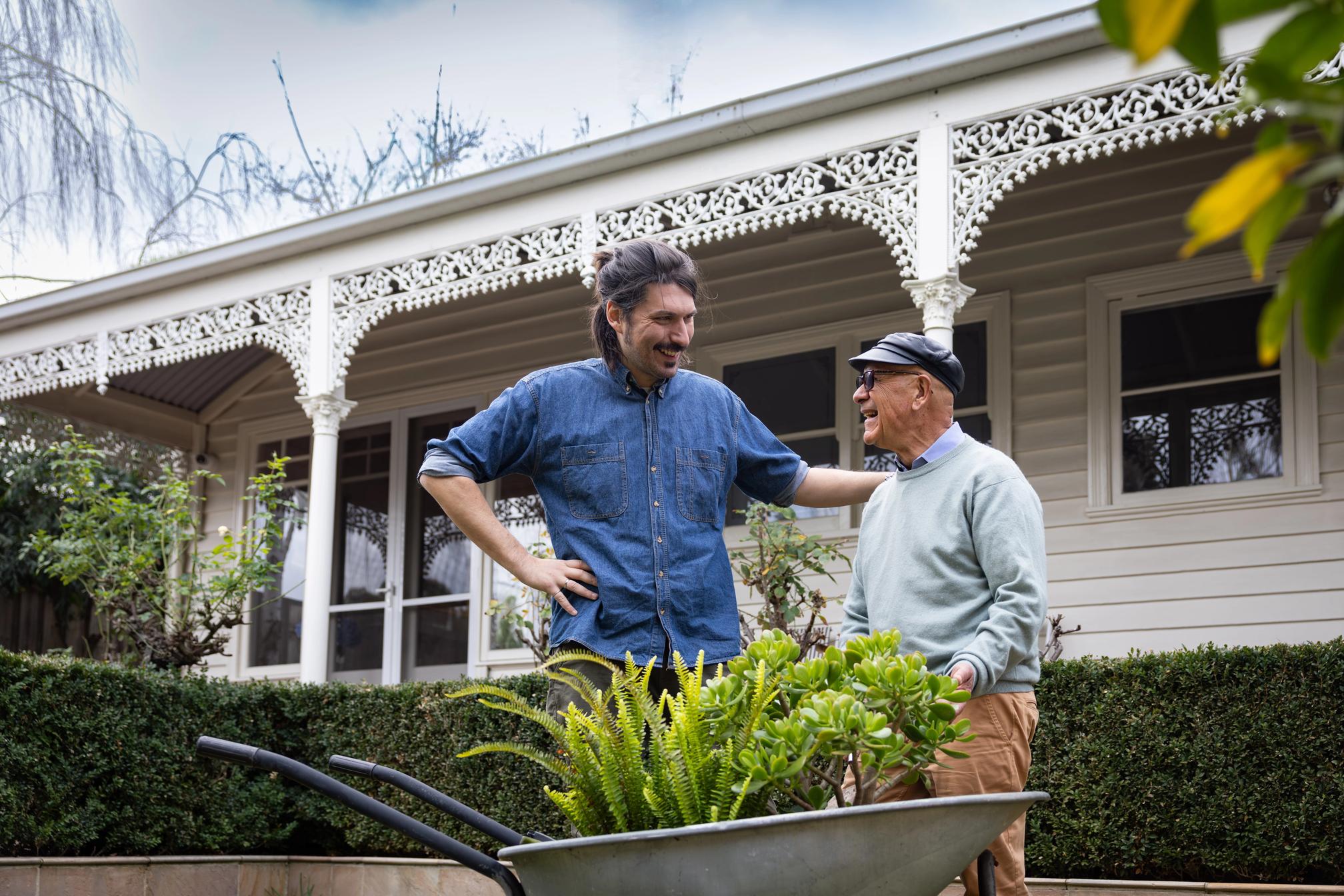Monday, August 25, 2025
Supporting male carers


Being a carer for someone you love and care about can be a life-changing experience. Very few people plan to become a carer and many are uncertain how to navigate their new role if they find themselves in this situation.
Whilst Australia is a modern society, there are still some social norms and expectations of how men and women might respond to the demands of caring for another person who depends on them for their everyday independence.
The number of male carers is reportedly on the rise and they often wait until there is a crisis before seeking help.
According to Dementia Australia, there are many complex reasons why some men might hesitate to ask for help including social constructs of masculinity, concern that they’re showing signs of weakness, and a stoic belief that they are fine and don’t need any help.
We are not suggesting that all male carers have difficulties or gender-related challenges. However, research tells us that female carers are more inclined to seek support and are often more comfortable with the caring activities required of them.
It is not uncommon that in some households, there have been longstanding divisions of labour. Some of the common challenges experienced by men who need to take over certain responsibilities may include taking over household duties, providing personal and intimate care, and dealing with the loss of emotional and social support of their partner.
Not all male carers are caring for someone living with dementia, but the following advice from Dementia Australia can be applied across many situations.
Dementia Australia advise male carers to:
- Learn about the condition your loved one is living with and the typical progression of the disease. Knowing what to expect can help people to plan and accept assistance from others along the way;
- Consider your strengths and weaknesses as a carer. Work out what you do and don’t enjoy, and get help for the things that you don’t enjoy doing;
- Delegate. Are there others who can help with some tasks? The less you have to do, the more quality time you can spend with the person you’re caring for;
- Start Early – it can take time to get new services and supports into place;
- Trial and Error – if one type of help doesn’t work for you, don’t be discouraged. Try something else;
- Look after yourself – pay attention to your diet, physical and mental health;
- Stay connected with family & friends, join support groups, attend carer education.
Men in caring roles typically form strong, empathetic bonds with those they care for, and their involvement can lead to positive outcomes for both the carer and the person.
Dementia Australia recognises the compassionate approach that men can bring to their caring role as well as the challenges they may face along the way. So they have developed a unique program called Blokes in the Caring Role.
During the workshops, male carers learn practical strategies and connect with other men who share similar experiences.
You can call the National Dementia Helpline on 1800 100 500 for more information about the workshops.
There are other resources including a video that focuses on the challenges of male carers, in particular men caring for a person living with dementia.